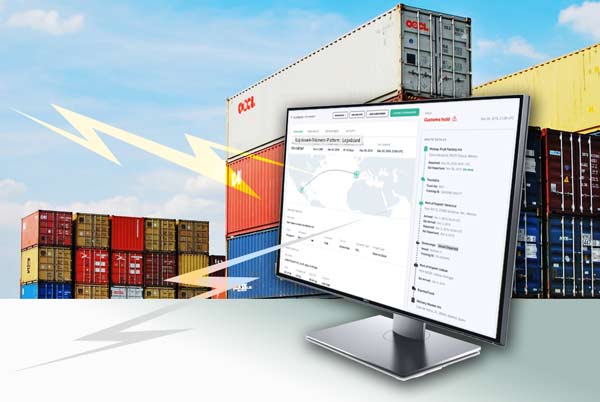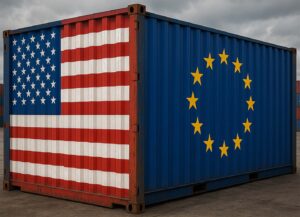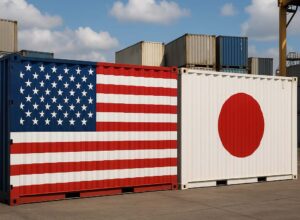If you’re looking to import goods to the United States, you need to understand the customs clearance process. Customs clearance is the process of ensuring that imported goods comply with regulations and are allowed to enter the country. In this article, we’ll take a look at the importance of customs clearance, who the key players are, and essential documents you’ll need for a successful clearance process.
The Importance of Customs Clearance in International Trade
Customs clearance is an essential aspect of international trade that ensures the safe and efficient movement of goods across borders. It plays a vital role in protecting a nation’s interests, both economically and in terms of public safety. Let’s dive deeper into the importance of customs clearance in international trade.
Ensuring Compliance with Regulations
One of the primary objectives of customs clearance is to ensure that imported goods comply with regulations. Different types of goods may be subject to different regulations, from tariffs and import quotas to health and safety regulations. These regulations are put in place to protect domestic industries and consumers and ensure fair competition in the market.
For instance, if an importer fails to comply with the regulations, their shipment may be subject to costly delays or even forced destruction. Therefore, it’s essential to understand the requirements for your specific goods and ensure compliance to avoid any legal or financial consequences.
Facilitating Smooth Trade Operations
Another important role of customs clearance is to facilitate smooth trade operations. This means that agencies involved in the clearance process, including government agencies, importers, and exporters, work together to ensure efficient and timely clearance of goods entering and leaving the country.
The clearance process involves a series of steps, from documentation to inspections and payments of duties and taxes. By streamlining the clearance process, delays and additional costs can be avoided, saving valuable time and resources. This, in turn, helps to promote international trade and contributes to economic growth and development.
Protecting Domestic Industries and Consumers
Customs clearance processes are also designed to protect domestic industries from unfair competition. By controlling the entry of imports, customs clearance helps to prevent the flooding of the market with cheap, low-quality imports, making it difficult for domestic producers to compete.
This protection is of utmost importance for the continued growth of domestic producers and the well-being of consumers, who ultimately benefit from a stable market. By ensuring fair competition, customs clearance plays a crucial role in promoting economic growth and development.
In conclusion, customs clearance is a critical aspect of international trade that ensures the safe and efficient movement of goods across borders. It helps to ensure compliance with regulations, facilitates smooth trade operations, and protects domestic industries and consumers from unfair competition. By understanding the importance of customs clearance, importers and exporters can navigate the clearance process with ease, contributing to the growth and development of international trade.
Key Players in the Customs Clearance Process
Several key players are involved in the customs clearance process in the US. These players work together to ensure that goods are imported and exported legally and efficiently. Understanding the roles of each player can help importers and exporters navigate the complex process of customs clearance.
Importers and Exporters
The importer or exporter is responsible for ensuring that the goods meet all legal requirements for import and pay any applicable fees. They are the ones bringing the goods into the country and must provide adequate documentation to prove the shipment’s contents. Importers and exporters are responsible for hiring custom brokers and freight forwarders to manage the rest of the process.
Importers and exporters must also be aware of any trade agreements or restrictions that may apply to their shipments. For example, if the goods are subject to a quota, the importer may need to obtain an import license or pay an additional fee to import the goods.
Additionally, importers and exporters must ensure that their goods meet all safety and quality standards set by the relevant government agencies. Failure to comply with these standards can result in the goods being detained or destroyed.
Customs Brokers
Customs brokers act as intermediaries between the importer/exporter and customs officials. They handle the paperwork allowing goods to pass through customs and deal with any issues that come up, including documentation problems, product misclassification, and valuation disputes.
Customs brokers must be licensed by the CBP and have a thorough understanding of customs laws and regulations. They work closely with importers and exporters to ensure that all necessary documentation is provided and that the goods are classified correctly.
Customs brokers can also provide valuable advice to importers and exporters on issues such as tariff classification, valuation, and country of origin marking requirements.
Freight Forwarders
Freight forwarders handle the logistical aspects of transportation and work with customs brokers to coordinate and track the shipment. They arrange for ground transportation, sea or airfreight, and oversee insurance coverage and warehouse storage.
Freight forwarders must also be aware of any special requirements for the shipment, such as temperature control or hazardous materials handling. They work closely with the importer/exporter and customs broker to ensure that the shipment is transported safely and efficiently.
Freight forwarders can also provide valuable advice on issues such as shipping routes, transit times, and transportation costs.
Government Agencies
U.S. Customs and Border Protection (CBP) is the primary government agency responsible for implementing customs laws and regulations. CBP agents review documents presented, inspect shipments, and determine whether to release or detain products. They also work with other agencies, such as the Food and Drug Administration (FDA) or the Consumer Product Safety Commission (CPSC), to ensure compliance with laws and regulations specific to each industry.
Other government agencies involved in the customs clearance process may include the Department of Agriculture, the Department of Commerce, and the Department of Homeland Security. These agencies may have specific requirements for certain types of goods, such as food products or military equipment.
Importers and exporters must work closely with these agencies to ensure that their goods meet all necessary requirements. Failure to comply with these requirements can result in the goods being detained or destroyed.
Essential Documents for Customs Clearance
When shipping goods across borders, it is vital to ensure that all the necessary documents are in order to avoid delays and additional costs. Several essential documents are needed for the customs clearance process.
One of the most important documents required is the commercial invoice. A commercial invoice is a document showing the shipment’s contents, including the product’s value, quantity, and country of origin. It’s necessary to determine the duties and taxes applied to a particular shipment and is one of the primary documents needed for customs clearance.
In addition to the commercial invoice, a packing list is also required. A packing list is a document detailing the contents of each package in the shipment and is useful for customs officials to detect if something is missing, damaged, or stolen. It allows for easier verification of the goods being declared on the invoice, and more precise determination of the duty and taxes applied.
Another crucial document is the bill of lading. The bill of lading is a legal document that acts as proof of ownership of the goods and details the shipment’s terms, such as how the goods will be transported, who will handle the transport, and when it will be delivered. It serves as a contract between the shipper and the carrier that ensures the shipment is received in good condition and in the agreed timeframe.
Furthermore, the certificate of origin (CO) is a document that declares at what country the goods were produced or manufactured. It is essential because the country of manufacture often impacts the duty and taxes required for the shipment. In addition, some products must comply with trade agreements that require a CO to be available to qualify for duty-free importation.
Finally, the import/export declaration is a document that details the shipment’s content and is used to validate the shipment, as well as to report statistical data to the government. The document is mandatory and must be filed electronically.
It is important to note that failure to provide any of these documents can result in customs delays, fines, and other penalties. Therefore, it is essential to ensure that all the necessary documents are in order before shipping goods across borders.
Understanding the customs clearance process is critical to the successful importation of goods into the United States. By ensuring compliance with regulations, facilitating smooth trade operations, protecting domestic industries, and requiring essential documents such as a commercial invoice, packing list, bill of lading, certificate of origin, and import/export declaration, U.S. customs clearance agencies provide essential services for importers and exporters. By working with experienced customs brokers and freight forwarders, you can minimize delays, reduce costs, and ensure a smooth, successful customs clearance process.






